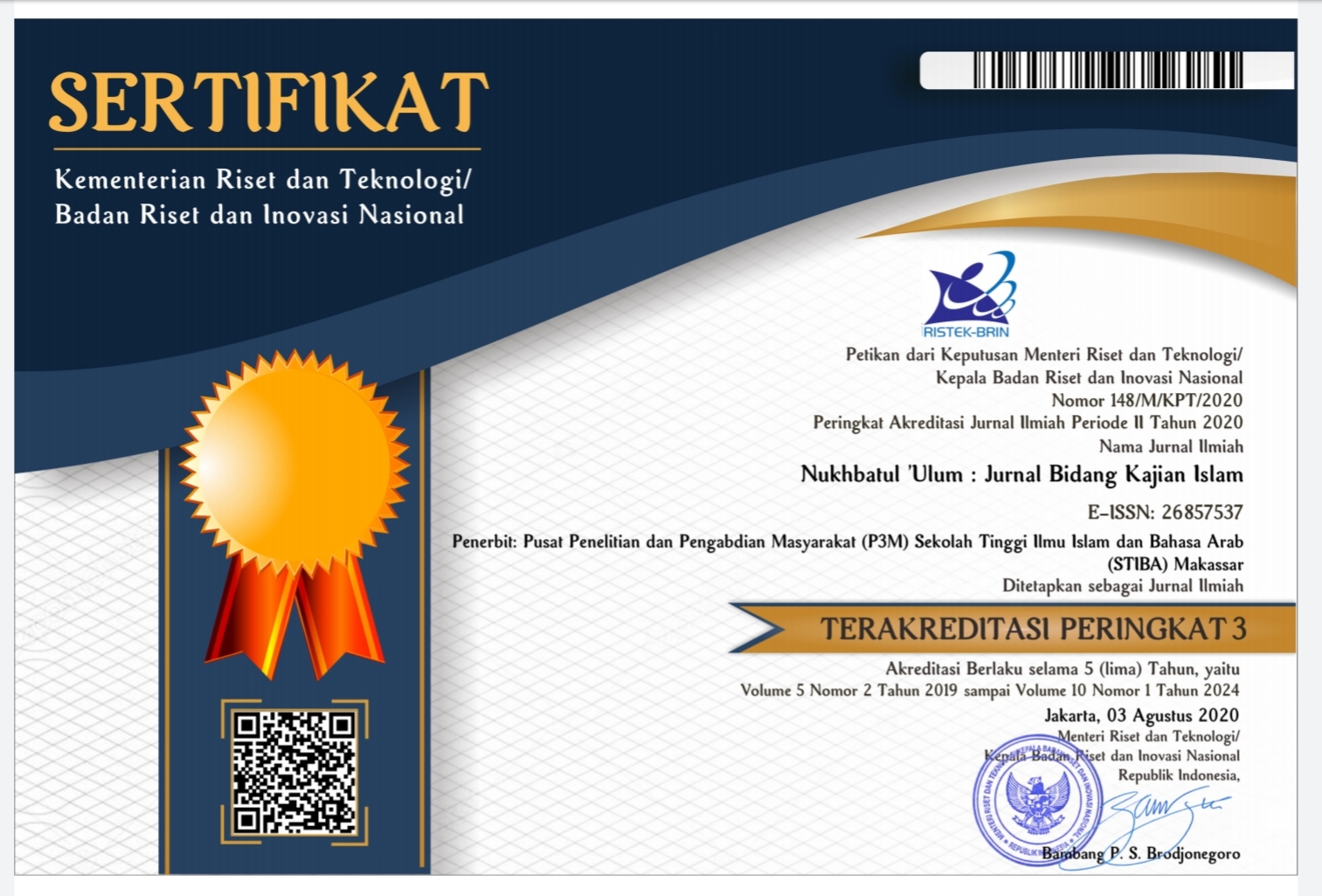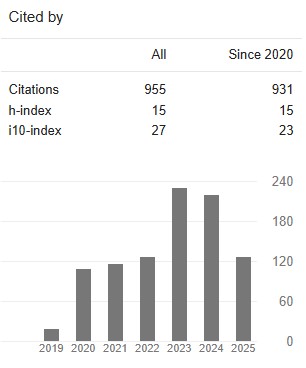Royalty Fee Bisnis Waralaba Ritel di Kota Makassar dalam Perspektif Hukum Ekonomi Syariah
Royalty Fee of Retail Franchise Business in the City of Makassar at Perspective of Sharia Economic Law
DOI:
https://doi.org/10.36701/nukhbah.v7i1.296Keywords:
Royalty Fee, Waralaba, Bisnis Waralaba Toko RitelAbstract
The aim of this research was to determine and understand the royalty fees for retail store franchise business in the perspective of Islamic economic law in the city of Makassar. This research was a type of qualitative descriptive research (non-statistical) using normative, phenomenological, and sociological approaches. Findings of this research revealed that: First, the franchise of company X with its franchisee was in accordance with the Islamic law, there was no element of fraud in terms of contracts and agreements which was implemented in transparency. While, the franchise of company Y and its franchisee, there were different perceptions of policies related to the contract and franchise agreement, namely the absence of a written signing so that it was not in accordance with sharia, but both parties agreed on considerations and amendment policies that made specifically by the franchisee. Second, the implementation of royalty fees between the two companies had been carried out in transparency. The difference of both companies and their franchisees was from the policy of late payment of royalty fees. Company X and its franchisee used a maximum three-month deadline with an interest system, this was not adjusted to Islamic law because interest includes usury. Then, company Y and its franchisee would absolutely not use the delay system policy, because the royalty fee would automatically be deducted from the franchisee's cashback by purchasing products at Company Y.
Downloads
References
Abdullah bin Muhammad bin Abdurahman bin Ishaq Al-Sheikh. Tafsir Ibnu Katsir Jilid 2. Bogor: Pustaka Imam Asy-Syafi‟i, 2003.
Abdurrahman bin Nashir as-Sa’di. Taisir al-Karim al-Rahman fi Taisir al-Kalam al-Manan, terj. Muhammad Iqbal, dkk, Tafsir Al-Qur’an. Cet. VI; Jakarta: Darul Haq, 2016.
Ascarya. Akad dan Produk Perbankan Syariah. Jakarta: Rajawali Press, 2007.
Faqih, Aunur Rohim. “Kontrak Bisnis Syariah Studi Mengenai Penerapan Prinsip-prinsip Syari’ah dalam Pembiayaan pada Bank Syariah di Indonesia”. Ringkasan Disertasi pada Program Doktor (S3) Ilmu Hukum Program Pascasarjana Fakultas Hukum Universitas Islam Indonesia Yogyakarta, 2014.
Karim, Adiwarman Azwar. Sejarah Pemikiran Ekonomi Islam. Cet. I. Jakarta: IIIT Indonesia, 2001.
Mardani. Fiqh Ekonomi Syariah. Jakarta: Kencana, 2013.
Najma, Siti. Bisnis Syariah dari Nol; Langkah Jitu Menuju Kaya, Penuh Berkah dan Bermakna. Jakarta: Hikmah, 2008.
Odop, Nistains. Berbisnis Waralaba Murah. Yogyakarta: Media Pressindo, 2006.
Rahman, Afjalur Rahman. Doktrin Ekonomi Islam. Jakarta: Dana Bhakti Wakaf, 1995.
Ranupandjojo, Heidjarachman. Manajemen Personalia. Yogyakarta: BPEF-UGM, 1990.
Riswadi, Budi Agus. Hak Kekayaan Intelektual dan Budaya Hukum. Jakarta: PT.Raja Grafindo Persada, 2004.
Saleh al-Fauzan. al-Mulakhasul Fiqh. terj. oleh Abdul Hayyie al-Kattani, dkk. Depok: Gema Insani, 2006.
Sholih bin Ghonim As Sadlan. Taysir al-Fiqh. Cet. I; t.t: Dar Blancia, 1424 H.
Sjahdeini, Sutan Remy. Perbankan Syariah: Produk-produk dan Aspek-aspek Hukumnya, dengan kata pengantar oleh Faturrahman Djalil. Cet. I; Jakarta: Kencana, 2014.
Wahbah al-Juhaily. al-Fiqh al-Islamiy wa Adillatuhu. Juz IV. Bairut: Dar al-Fikr, 1989.
Ya’qub, Hamzah. Kode Etik Dagang Menurut Islam. Cet. I; Bandung: Diponegoro, 1984.
Yudanto, Oktofan Hari. Analisis Perjanjian Uasha Waralaba Makanan Dalam Perspektif Hukum Islam (Studi Kasus Di Crunchy Molen Kress Di Desa Gumpang, Kec.Kartasura, Kab. Sukoharjo). Publikasi Ilmiah, 2017


















